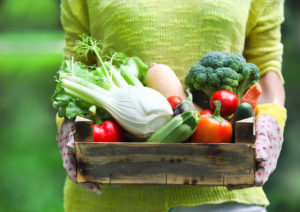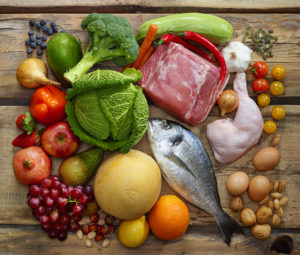Take Back Your Health by Eating ‘Real Food’
Dr. Jennifer Jackson
I would estimate that over 80% of disease processes I see every day are directly linked to diet. A traditionally neglected area of discussion, nutrition is paramount
to both disease prevention and treatment but much of the current advice about diet can be confusing and is weighted down with conflicts of interest and advice that seems insurmountable with limited budgets of both money and time.
If there is one single rule that sums up the mainstay of dietary advice that I believe is good for everyone, it is simply  “eat real food.” A phase made famous by author Michael Pollan, and seemingly so simple, this advice pierces the root of the current food crisis defining the standard American diet.
“eat real food.” A phase made famous by author Michael Pollan, and seemingly so simple, this advice pierces the root of the current food crisis defining the standard American diet.
In only one generation, Americans have obliterated centuries of common wisdom and advice on how to prepare and preserve nutrient dense foods swapping kitchen prep for drive through windows and prepared “meals” that come to us packaged and ready to serve. Believing the hype that food planning and preparation is expensive (it’s not), takes too much time (it doesn’t) or is simply obsolete in this postmodern era (it’s not) we have traded our culinary skills for goldfish crackers and Wonder Bread.
It is these prepared, highly processed, nutrient-poor edible items that now predominate the grocery carts of most American families. Even schools encourage “snacks” of small package convenient items in the name of safety. But there is nothing safe about the ingredients they contain.
If you want to take back your health, then take back your pantry:
- Eliminate highly processed grains including crackers, cookies, cakes, chips, pretzels, breads and pastas. Carrots,
 apples, grapes, melon, berries, celery, cucumbers, peppers, dried fruit, nuts and seeds are grab and go, take no prep work, pair well with dips and spreads and are packed with nutrition.
apples, grapes, melon, berries, celery, cucumbers, peppers, dried fruit, nuts and seeds are grab and go, take no prep work, pair well with dips and spreads and are packed with nutrition. - Concerned about spoilage or cost of fresh foods? Plant anything, buy from a neighbor with a garden, eat in season, buy surplus and preserve (can, dehydrate, freeze).
- Yes soda is worthless in so many ways. But so are fruit juices and sports drinks. Not only are they loaded with sugar but they are full of artificial colors too. No, playing outdoors does not require Gatorade.
- Need to save a buck? Pack your lunch. It is definitely less expensive, is a great way to use leftovers and makes it so easy to control the quality of your food. A salad at McDonalds is $4.79 and takes far more time to obtain then the one you put together in less than 5 minutes last night while cleaning up after dinner.
- Short on time? Crockpots are wonderful. Good for just about anything and the food always gets better with time. Make a bunch and you have a lunch.
This article was originally published in the Wichita Eagle on December 5, 2016. It was reprinted with permission from the author.
Jennifer Jackson MD, FACP serves as the medical director for the Via Christi Transitional Care Programs focusing on disease management in high risk and vulnerable patient populations. She also dedicates time training future doctors for the state of Kansas as the Associate Program Director for KU Internal Medicine Residency in Wichita directing care in outpatient residency clinic and inpatient ward service at Via Christi St. Francis. She is board certified in internal medicine and hospice and palliative care working with a local Wichita hospice to improve care for patients and their families near the end of life.
Her passion is research and teaching about a whole foods diet and sustainable agricultural practices as it relates to human health and environmental issues. In summer 2013, she and her family relocated to a 40 acre farm implementing a grass finished cattle and pastured poultry business using local distribution and “beyond organic” farming practices as modeled by Joel Salatin’s Polyface Farm. You can find more information about her family’s farm on Facebook at “Jackson Family Farms.”





